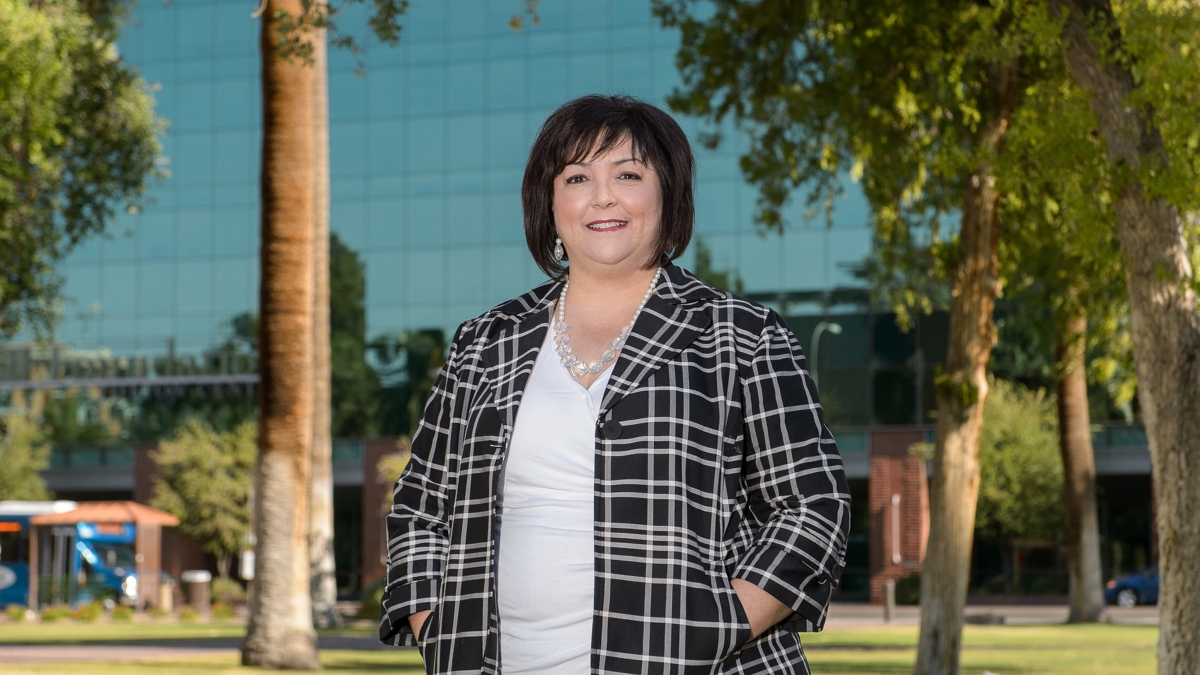Planning commencement: it's a year-round job

This May, as thousands of Arizona State University students cross the stage to accept their diplomas and proudly turn their tassels, Melissa Werner will be watching too – and, chances are, feeling just as proud. As director of University Ceremonies at ASU, it’s Werner's job to make sure everything goes smoothly at university events.
In a recent interview with Higher Ed Jobs, excerpted below, Werner spoke about the challenges, rewards and day-to-day operations that go into planning one of the largest graduation ceremonies in the world. (The entire Q&A story can be found here.)
A year-round job
"Because graduation and the commencement ceremony is a life event ... we are often fielding questions about ceremonies, two, three or five years out. ... We are continually looking at the numbers of graduates and guests from semester to semester and year to year."
That one moment ...
"The most exciting part of my job is watching that moment when students 'turn the tassel' near the end of the commencement ceremony. Seeing their excitement and the happiness of families and friends celebrating an incredible achievement is very rewarding."
Big event, lots of details
"One of the biggest challenges is trying to educate those who are not event professionals about the amount of time, effort and detail involved in producing a large-scale event. ... Because we deal with many individuals who spend their lives working at the micro-level – some of them literally working with microbes – it's hard for them to wrap their minds around the large-scale activity of a graduation ceremony."
Rallying the troops
"Not long after I began planning commencement, (my then-boss and NAACO co-founder, Carol Switzer) approached me and indicated that it was time to get this idea in place that she had about gathering commencement planners to share information and best practices. Naively, we thought this would be a small group of people meeting every other year or so to talk about graduation ceremonies. The idea caught on quickly and in less than a year, NAACO (North American Association of Commencement Officers) was formed.
"The association has expanded to more than 350 member institutions in the United States and Canada, with more than 900 individual members. One of the challenges with gathering graduation professionals together is that we exist in many different areas of the university. ... The establishment of the association has changed that."
Going green
"Many institutions have turned to more sustainable practices not only for graduation events, but also for all special events. ... ASU recently began providing a digital program for commencement. We have moved away from producing tens of thousands of printed programs of more than 280 pages. We now put the full commencement program onto a flash drive that is handed to graduates after they cross the stage.
"Over the course of a full academic year, ASU has reduced the number of printed program pages by nearly 20 million in fall and spring. The 'green' event is now becoming the standard among institutions."
Going live!
"Arizona State will … be using social media via a live Twitter feed before the University Undergraduate Commencement Ceremony begins this spring. Social media is a great way to allow everyone to participate in the graduation activity by sharing photos and sending congratulatory messages via Twitter, Instagram and Facebook. It also creates a larger reach for the graduation activity beyond the university."
Become certified
Werner recently completed a rigorous certification exam to earn herself a credential that sets the benchmark for best event practices worldwide: the title of Certified Special Events Professional (CSEP). Kristin Olafsdottir, special events manager in the Fulton Schools of Engineering, and Evan Schaefer, coordinator senior in the Memorial Union, completed the certification as well.
Established in 1993, the designation recognizes event professionals who have successfully demonstrated the knowledge, skills and ability essential to perform all components of a special event, and offers a competitive advantage when soliciting business as either a special events industry supplier or planner.
The certification is international and there are less than 400 CSEPs globally, and only seven in the state of Arizona. Werner and her colleagues hope to encourage more event professionals on campus to pursue this certification. To learn more about the CSEP program, visit http://www.ises.com/csep/home.